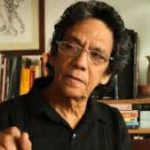OPINIÓN DESDE CUBA: ENTRE EL SOMETIMIENTO, LA REBELDIA Y EL ACOMODO. PHOTOS
Por Reinaldo Escobar, La Habana, Cuba.
EL DILEMA entre someterse o rebelarse es universal y se manifiesta ante las leyes de la naturaleza, las imposiciones familiares y los dictámenes políticos, religiosos o sociales de cada nación, de cada época. Queda también el acomodo.
Los humanos nos hemos sometido a la ley de la gravedad, pero como expresión de rebeldía inventamos los aviones, cohetes y drones. Siendo niños, nuestros padres nos impidieron fumar y beber alcohol, pero al llegar a la adolescencia nos dimos cuenta de que podíamos hacerlo a escondidas. Todas las prohibiciones legales, las reglas que etiquetan lo “mal visto” en la cultura que nos tocó vivir, se acatan sumisamente por los obedientes, son resistidas desafiantemente por los más rebeldes y resultan aceptadas, solo en apariencia, por los simuladores que las transgreden con su correspondiente máscara de docilidad.
A lo largo de más de seis décadas estas tradicionales respuestas humanas han tenido en Cuba una evolución digna de estudio. Cada cual ha asumido con diferentes gradaciones alguna de estas posturas, las ha mezclado o migrado de una a otra.
Poco después vino la disciplina y se nos explicó que “este no [era] el momento” para hacer críticas y que no podíamos “hacerle el juego al enemigo”
Hubo un momento en que para muchos cubanos sentirse revolucionario e identificarse como tal se entendía como la más pura demostración de rebeldía. Era cuando nos entusiasmaba aquel himno del 26 de julio: “limpiando con fuego que arrase con esta plaga infernal de gobernantes indeseables y de tiranos insaciables…”. Poco después vino la disciplina y se nos explicó que “este no [era] el momento” para hacer críticas y que no podíamos “hacerle el juego al enemigo”, y entonces apareció en otra canción aquello de “la mordazamor de un juramento”.
Aquel sometimiento voluntario surgido de ideales se encorsetó en el reducido espacio de la militancia partidista, que no solo rechazaba señalar “las manchas en el sol” sino que, en casos extremos, impedía verlas.
Pero las manchas comenzaron a hacerse visibles a medida que dejaron de ser una metáfora de alusiones siderales para convertirse en el magro desayuno de nuestros hijos, el hacinamiento de nuestros hogares, el colapsado transporte público, los comercios desabastecidos y el colérico tapabocas que se recibía por cualquier protesta.
En respuesta ante la intolerancia de quienes no aceptan crítica alguna, no solo contra el proceso,sino tampoco contra las propuestas para mejorarlo, los ríos de la inconformidad se bifurcaron, unos hacia la rebeldía, armada o pacífica; otros hacia las sinuosidades del acomodo.
La rebeldía armada se anuló con un número mayor de armas regaladas por los soviéticos y la pacífica se enfrentó –se enfrenta– a garrotazos y encarcelamientos desproporcionados.
PERO QUEDABA EL ACOMODO
Pero quedaba el acomodo, y por ese innoble afluente se despeñaron las virtudes cívicas, las ilusiones sobre el futuro y, desde luego, las ambiciones políticas.
Desde el poder nos invitan al acomodo cuando se nos exhorta a practicar “la resistencia creativa”. Cuando en el mercado vuela el aceite de cocina, aparecen casualmente numerosas recetas para prescindir de él. Cuando a los niños mayores de 7 años, en lugar de leche, les entregan en el mercado racionado un sirope saborizado, asoman en las redes sociales controladas por el Gobierno, las fórmulas para prepararlo de forma apetecible. Cuando el Banco Central de Cuba impone la bancarización, no ya de la economía, sino de la vida misma, que en la práctica limita las extracciones del dinero que recibimos como salarios o pensiones por falta de billetes, emergen de la nada los nuevos cambistas que nos dan 1.000 pesos en efectivo si le traspasamos 1.050 a su cuenta bancaria a través de la plataforma Transfermovil.
Una sentencia atribuida a Enmanuel Kant dice: “¡Es tan cómodo no estar emancipado!”. A lo que podríamos apostillar: “¡Y qué incómodo es estar preso!”
Nos acomodamos cuando nos dejan participar en el debate del Código de las Familias pero no nos dejan opinar sobre el Código Penal, cuando vemos una puerta abierta a la emigración en la libre entrada sin visa a Nicaragua y aún más, cuando desde el exilio aceptamos la regla no escrita de que mantenernos callados allá afuera es la garantía de poder entrar a la Isla sin problemas. Peor aún, cuando acá adentro aceptamos la sugerencia del agente de la Seguridad del Estado que “nos atiende” de que no debemos hablar con la prensa independiente sobre nuestro familiar preso porque eso perjudica su caso.
Una sentencia atribuida a Enmanuel Kant dice: “¡Es tan cómodo no estar emancipado!”. A lo que podríamos apostillar: “¡Y qué incómodo es estar preso!”
Presos están en Cuba unos rebeldes como José Daniel Ferrer, Félix Navarro, Luis Manuel Otero Alcántara, Maykel Osorbo y un millar de cubanos y cubanas solo porque se han negado a someterse, porque han dejado pasar la oportunidad de acomodarse.
 REINALDO ESCOBAR, Periodista Cubano que reside en La Habana, Cuba.
REINALDO ESCOBAR, Periodista Cubano que reside en La Habana, Cuba.
OPINION FROM CUBA: BETWEEN SUBMISSION, REBELDIA AND ACCOMMODATION. PHOTOS
By Reinaldo Escobar, La Habana, Cuba.
THE DILEMMA between submitting or rebelling is universal and manifests itself before the laws of nature, family impositions and the political, religious or social dictates of each nation, of each era. There is also accommodation.
Humans have submitted to the law of gravity, but as an expression of rebellion we invented airplanes, rockets, and drones. As children, our parents prevented us from smoking and drinking alcohol, but when we reached adolescence we realized that we could do it in secret. All legal prohibitions, the rules that label what is “frowned upon” in the culture in which we live, are submissively followed by the obedient, defiantly resisted by the most rebellious, and accepted, only in appearance, by the pretenders who transgress them. with its corresponding mask of docility.
Throughout more than six decades these traditional human responses have evolved in Cuba worthy of study. Each one has assumed some of these positions with different gradations, has mixed them or migrated from one to another.
Discipline came soon after and it was explained to us that “this [was] not the time” to criticize and that we could not “play the enemy’s game.”
There was a time when for many Cubans feeling revolutionary and identifying themselves as such was understood as the purest demonstration of rebellion. It was when that hymn of July 26 excited us: “cleansing with fire that destroys this infernal plague of undesirable rulers and insatiable tyrants…”. Discipline came shortly after and it was explained to us that “this [was] not the time” to criticize and that we couldn’t “play the enemy’s game”, and then that thing about “the love gag of an oath” appeared in another song.
That voluntary submission arising from ideals was corseted in the reduced space of partisan militancy, which not only refused to point out “spots on the sun” but, in extreme cases, prevented seeing them.
But the stains began to become visible as they ceased to be a metaphor for sidereal allusions to become the meager breakfast of our children, the overcrowding of our homes, the collapsed public transport, the unstocked shops and the angry masks that were received by any protest.
In response to the intolerance of those who do not accept any criticism, not only against the process, but also against the proposals to improve it, the rivers of disagreement forked, some towards rebellion, armed or peaceful; others towards the sinuosities of accommodation.
The armed rebellion was annulled with a greater number of weapons donated by the Soviets and the peaceful one faced – is facing – clubbing and disproportionate imprisonment.
BUT THE ACCOMMODATION REMAINED
But accommodation remained, and civic virtues, illusions about the future, and, of course, political ambitions, tumbled down that ignoble tributary.
Those in power invite us to accommodate when we are exhorted to practice “creative resistance.” When cooking oil flies on the market, numerous recipes appear by chance to do without it. When children over 7 years of age are given a flavored syrup in the rationed market instead of milk, the formulas to prepare it in an appetizing way appear on the social networks controlled by the Government. When the Central Bank of Cuba imposes the bancarization, not just of the economy, but of life itself, which in practice limits the withdrawals of the money we receive as salaries or pensions due to lack of banknotes, new money changers emerge out of nowhere who They give us 1,000 pesos in cash if we transfer 1,050 to your bank account through the Transfermovil platform.
A sentence attributed to Immanuel Kant says: “It is so comfortable not to be emancipated!”. To which we could add: “And how uncomfortable it is to be in prison!”
We accommodate ourselves when they let us participate in the debate on the Family Code but do not let us comment on the Penal Code, when we see an open door to emigration in the free entry without a visa to Nicaragua and even more, when from exile we accept the unwritten rule that keeping quiet out there is the guarantee of being able to enter the Island without problems. Worse still, when we here accept the suggestion of the State Security agent who “serves us” that we should not talk to the independent press about our imprisoned relative because that harms his case.
A sentence attributed to Immanuel Kant says: “It is so comfortable not to be emancipated!”. To which we could add: “And how uncomfortable it is to be in prison!”
Rebels such as José Daniel Ferrer, Félix Navarro, Luis Manuel Otero Alcántara, Maykel Osorbo and a thousand Cuban men and women are imprisoned in Cuba only because they have refused to submit, because they have let the opportunity to accommodate themselves pass by.
 REINALDO ESCOBAR, Periodista Cubano que reside en La Habana, Cuba.
REINALDO ESCOBAR, Periodista Cubano que reside en La Habana, Cuba.
Agencies/ 14yMedio, Reinaldo Escobar/ Extractos/ Excerpts/ Internet Photos/ Arnoldo Varona/ www.TheCubanHistory.com
THE CUBAN HISTORY, HOLLYWOOD.



 OPINION DESDE CUBA: Entre el Sometimiento, la Rebeldía y el Acomodo. PHOTOS. * OPINION from Cuba: Between Submission, Rebeldia and Accommodation. PHOTOS.
OPINION DESDE CUBA: Entre el Sometimiento, la Rebeldía y el Acomodo. PHOTOS. * OPINION from Cuba: Between Submission, Rebeldia and Accommodation. PHOTOS.




